Hair Skin and Nails Vitamins: What Are They Used For?
Hair, skin, and nails vitamins are specialized nutritional supplements designed to address the unique needs of these three interconnected body systems. These vitamins work by providing essential nutrients that support cellular regeneration, protein synthesis, and structural integrity at the molecular level.The primary purpose of these supplements is to fill nutritional gaps that may exist in your regular diet, particularly nutrients that are crucial for maintaining healthy keratin production, collagen synthesis, and cellular repair mechanisms. Many people struggle to obtain adequate amounts of these specific nutrients through food alone, making supplementation a practical solution for achieving optimal results.
Key Ingredients and Their Benefits
Hair, skin, and nails vitamins typically contain a carefully selected blend of nutrients that work together to support beauty from within:
Biotin (Vitamin B7):
- Essential for keratin production, the primary protein in hair and nails
- Supports metabolic processes that convert nutrients into energy for cellular growth
- Helps maintain the structural integrity of hair follicles and nail beds
- Promotes healthy sebum production for scalp and skin health
Collagen Peptides:
- Provide building blocks for skin elasticity and firmness
- Support hair shaft strength and thickness
- Help maintain nail flexibility and reduce brittleness
- Contribute to overall connective tissue health throughout the body
Vitamin C (Ascorbic Acid):
- Critical for collagen synthesis and cross-linking
- Powerful antioxidant that protects against environmental damage
- Supports iron absorption, which is essential for healthy hair growth
- Helps maintain capillary integrity for improved nutrient delivery
Vitamin E:
- Protects cell membranes from oxidative stress and free radical damage
- Supports healthy circulation to hair follicles and nail beds
- Helps maintain skin moisture and elasticity
- Works synergistically with other antioxidants for enhanced protection
Conditions These Vitamins Help Improve
These specialized supplements can address various common concerns affecting hair, skin, and nail health:
Hair-Related Issues:
- Thinning or weakening hair due to nutritional deficiencies
- Slow hair growth and poor hair quality
- Brittle or damaged hair from environmental stressors
- Lack of shine and vitality in hair appearance
Skin Concerns:
- Premature aging signs such as fine lines and wrinkles
- Dull, tired-looking complexion lacking radiance
- Dry or rough skin texture requiring moisture support
- Uneven skin tone and texture irregularities
Nail Problems:
- Weak, brittle nails that break or split easily
- Slow nail growth and poor nail quality
- Ridged or uneven nail surfaces
- Lack of nail strength and flexibility
| Condition | Primary Nutrients | Expected Timeline |
|---|---|---|
| Brittle nails | Biotin, Silica, Zinc | 8-12 weeks |
| Thinning hair | Biotin, Iron, Protein | 12-16 weeks |
| Dull skin | Vitamin C, E, Collagen | 6-10 weeks |
| Slow growth | B-complex, Biotin | 10-14 weeks |
Best Hair, Skin, and Nails Vitamins for Healthy Growth
Selecting the most effective vitamins requires understanding how specific nutrients contribute to the health and appearance of hair, skin, and nails. The best supplements combine scientifically-proven ingredients in optimal ratios to maximize absorption and effectiveness.
How Biotin Supports Hair and Nail Strength
Biotin stands out as one of the most crucial nutrients for hair and nail health, playing multiple roles in maintaining structural integrity and promoting healthy growth:
Keratin Production Enhancement:
- Biotin serves as a cofactor in the synthesis of keratin, the primary structural protein
- Adequate biotin levels ensure proper keratin formation and cross-linking
- Supports the development of stronger, more resilient hair strands and nail plates
- Helps maintain the protective cuticle layer of hair and the nail matrix
Metabolic Support Functions:
- Facilitates the metabolism of amino acids essential for protein synthesis
- Supports fatty acid production necessary for healthy sebum and natural oils
- Enhances glucose metabolism, providing energy for active hair follicles and nail growth
- Improves cellular communication between hair follicles and surrounding tissues
Clinical Evidence and Effectiveness: Research has consistently demonstrated biotin's effectiveness in improving nail thickness and reducing brittleness. Studies show that individuals with biotin deficiency often experience significant improvements in hair and nail quality within 8-12 weeks of supplementation. The recommended dosage typically ranges from 2,500 to 10,000 micrograms daily, depending on individual needs and deficiency levels.
Collagen Supplements for Glowing Skin
Collagen represents the most abundant protein in the human body and plays a fundamental role in maintaining skin structure, elasticity, and youthful appearance:
Skin Structure Support:
- Provides essential amino acids for new collagen formation
- Helps maintain skin thickness and density as we age
- Supports the dermal matrix that gives skin its firmness and elasticity
- Contributes to proper wound healing and skin repair mechanisms
Anti-Aging Benefits:
- Reduces the appearance of fine lines and wrinkles over time
- Improves skin hydration and moisture retention capabilities
- Enhances skin elasticity and firmness for a more youthful appearance
- Supports cellular turnover for improved skin texture and tone
Types and Absorption: Different types of collagen offer varying benefits, with Type I being most beneficial for skin health, while Type II supports joint health. Hydrolyzed collagen peptides offer superior absorption compared to whole collagen proteins, making them more effective for supplementation purposes.
The Role of Antioxidants in Skin Health
Antioxidants play a crucial protective role in maintaining healthy skin by neutralizing harmful free radicals and supporting cellular repair processes:
Primary Antioxidant Functions:
- Neutralize free radicals generated by UV exposure, pollution, and stress
- Protect cellular DNA from oxidative damage that accelerates aging
- Support the skin's natural defense mechanisms against environmental stressors
- Enhance the effectiveness of other nutrients through synergistic interactions
Key Antioxidant Nutrients:
- Vitamin C: Essential for collagen synthesis and immune function
- Vitamin E: Protects cell membranes and supports moisture retention
- Selenium: Works with vitamin E to enhance antioxidant protection
- Beta-carotene: Provides natural sun protection and supports skin repair
Essential Vitamins for Stronger Hair and Nails
Building strong, healthy hair and nails requires a comprehensive approach that addresses multiple nutritional factors simultaneously. Understanding how specific vitamins contribute to structural integrity helps optimize supplementation strategies.
Vitamin E: A Powerful Antioxidant for Hair Growth
Vitamin E offers unique benefits for hair health through its potent antioxidant properties and circulation-enhancing effects:
Scalp Health Optimization:
- Improves blood circulation to hair follicles, enhancing nutrient delivery
- Protects scalp tissues from oxidative stress and inflammation
- Supports healthy sebum production for optimal scalp moisture balance
- Helps maintain the integrity of hair follicle cells and surrounding tissues
Hair Shaft Protection:
- Shields hair strands from environmental damage and UV radiation
- Prevents lipid peroxidation in hair cell membranes
- Maintains hair's natural moisture content and flexibility
- Reduces hair breakage and splitting by strengthening the hair cuticle
Research and Effectiveness: Clinical studies have shown that vitamin E supplementation can increase hair growth by up to 34% in individuals with hair loss conditions. The recommended dosage ranges from 400-800 IU daily, though higher doses should be monitored by healthcare professionals due to potential interactions with blood-thinning medications.
Keratin Supplements and Their Benefits
Keratin supplements provide direct support for hair and nail structure by supplying the specific proteins needed for healthy growth:
Direct Protein Support:
- Supplies bioavailable keratin peptides that can be incorporated into new growth
- Provides essential amino acids in optimal ratios for keratin synthesis
- Supports the natural repair processes of damaged hair and nails
- Enhances the structural integrity of existing hair strands and nail plates
Comprehensive Benefits:
- Improves hair thickness and reduces breakage significantly
- Enhances nail hardness and resistance to chipping or splitting
- Supports faster recovery from chemical or heat damage to hair
- Contributes to improved overall hair and nail appearance and manageability

Do Multivitamins Improve Hair Thickness?
Multivitamins can contribute to improved hair thickness when they address underlying nutritional deficiencies that may be affecting hair growth:
Nutritional Foundation:
- Provide a broad spectrum of nutrients essential for healthy hair growth
- Address multiple deficiencies simultaneously for comprehensive support
- Support overall health, which indirectly benefits hair quality and growth
- Offer convenience and cost-effectiveness compared to individual supplements
Specific Nutrients for Thickness:
- Iron: Essential for proper oxygen delivery to hair follicles
- Zinc: Supports protein synthesis and hair follicle health
- B-complex vitamins: Work together to support energy metabolism and cellular function
- Vitamin D: Plays a role in hair follicle cycling and new hair growth
Limitations and Considerations: While multivitamins provide general nutritional support, they may not contain therapeutic levels of specific nutrients like biotin or collagen that are most beneficial for hair, skin, and nail health. Specialized supplements often provide higher concentrations of targeted nutrients for more noticeable results.
| Vitamin | Hair Benefit | Recommended Daily Amount |
|---|---|---|
| Biotin | Keratin production | 2,500-10,000 mcg |
| Vitamin E | Antioxidant protection | 400-800 IU |
| Iron | Oxygen transport | 18 mg (women), 8 mg (men) |
| Zinc | Protein synthesis | 8-11 mg |
Natural Ways to Boost Hair, Skin, and Nail Health
While supplements provide concentrated nutrition, incorporating natural approaches through diet and lifestyle can enhance their effectiveness and provide sustainable long-term benefits for hair, skin, and nail health.
Foods Rich in Hair-Strengthening Vitamins
A well-balanced diet forms the foundation of healthy hair, skin, and nails by providing essential nutrients in their most bioavailable forms:
Protein-Rich Foods:
- Eggs: Complete protein source with biotin, sulfur, and selenium
- Fish: Omega-3 fatty acids, protein, and vitamin D for scalp health
- Lean meats: Iron, zinc, and B-vitamins essential for hair growth
- Legumes: Plant-based protein, iron, and zinc for vegetarian options
Vitamin and Mineral Sources:
- Leafy greens: Folate, iron, and vitamins A and C for cellular health
- Nuts and seeds: Vitamin E, healthy fats, and minerals for hair strength
- Citrus fruits: Vitamin C for collagen production and iron absorption
- Sweet potatoes: Beta-carotene for skin health and cellular protection
Biotin-Rich Options:
- Avocados: Natural biotin, healthy fats, and vitamin E
- Mushrooms: Biotin, selenium, and immune-supporting compounds
- Cauliflower: Biotin, vitamin C, and sulfur compounds
- Bananas: Biotin, potassium, and natural sugars for energy
How Hydration Affects Skin and Nail Quality
Proper hydration plays a fundamental role in maintaining the health and appearance of skin and nails through multiple physiological mechanisms:
Skin Hydration Benefits:
- Maintains skin elasticity and prevents premature aging
- Supports the skin's natural barrier function against environmental stressors
- Enhances nutrient delivery to skin cells through improved circulation
- Facilitates the removal of toxins and waste products from skin tissues
Nail Health Impact:
- Prevents nail brittleness and cracking by maintaining flexibility
- Supports healthy cuticle condition and nail bed circulation
- Enhances nutrient transport to nail matrix cells for optimal growth
- Reduces the risk of nail infections by maintaining proper moisture balance
Hydration Strategies:
- Aim for 8-10 glasses of water daily, adjusting for activity level and climate
- Include hydrating foods like watermelon, cucumber, and celery in your diet
- Use a humidifier in dry environments to support skin moisture
- Limit dehydrating substances like alcohol and excessive caffeine
Combining Supplements for Maximum Results
Strategic combination of supplements can create synergistic effects that enhance overall effectiveness:
Complementary Nutrient Pairs:
- Vitamin C + Iron: Enhances iron absorption for better hair growth support
- Biotin + Zinc: Works together to support keratin production and protein synthesis
- Collagen + Vitamin C: Optimizes collagen synthesis and utilization
- Vitamin E + Selenium: Provides enhanced antioxidant protection
Timing and Absorption:
- Take fat-soluble vitamins (A, D, E, K) with meals containing healthy fats
- Space iron supplements away from calcium and zinc to prevent absorption interference
- Consider taking B-vitamins in the morning for energy support
- Take magnesium in the evening as it can promote relaxation and better sleep
Choosing the Right Hair, Skin, and Nails Supplement
Selecting an effective supplement requires careful consideration of ingredients, quality standards, and individual health needs to ensure optimal results and safety.
Key Ingredients to Look for in Vitamins
When evaluating hair, skin, and nails supplements, focus on these evidence-based ingredients:
Essential Core Ingredients:
- Biotin: Look for 2,500-10,000 mcg for therapeutic effects
- Collagen peptides: Ensure hydrolyzed forms for better absorption
- Vitamin C: Minimum 60 mg, ideally 500-1000 mg for enhanced benefits
- Vitamin E: Natural mixed tocopherols preferred over synthetic forms
Supporting Nutrients:
- Silica: Supports connective tissue health and nail strength
- MSM (Methylsulfonylmethane): Provides sulfur for keratin production
- Hyaluronic acid: Enhances skin hydration and moisture retention
- Amino acids: Particularly cysteine, methionine, and lysine for protein synthesis
Quality Indicators:
- Third-party testing for purity and potency verification
- GMP (Good Manufacturing Practices) certification
- Clear labeling of all ingredients and concentrations
- Expiration dates and proper packaging to maintain stability
Potential Side Effects of Over-Supplementation
While hair, skin, and nails vitamins are generally safe, excessive intake can lead to adverse effects:
Biotin Overconsumption:
- May interfere with laboratory test results, particularly thyroid and cardiac markers
- Rare cases of skin rashes or digestive upset in sensitive individuals
- Generally well-tolerated even at high doses due to water-soluble nature
- Recommended to inform healthcare providers about biotin supplementation before testing
Fat-Soluble Vitamin Toxicity:
- Vitamin A: Excessive intake can cause liver damage and birth defects
- Vitamin E: High doses may increase bleeding risk, especially with anticoagulants
- Vitamin D: Overconsumption can lead to calcium buildup and kidney problems
- These vitamins accumulate in body tissues, making moderation crucial
Mineral Imbalances:
- Iron: Excess iron can cause gastrointestinal upset and organ damage
- Zinc: Too much zinc can interfere with copper absorption and immune function
- Selenium: High levels can cause selenosis with hair loss and neurological symptoms
Are Gummy Vitamins Effective for Hair Growth?
Gummy vitamins offer convenience and palatability but have specific considerations regarding effectiveness:
Advantages of Gummy Forms:
- Higher compliance rates due to pleasant taste and easy consumption
- Good option for individuals who have difficulty swallowing pills
- Often contain fewer artificial additives than some traditional tablets
- May be easier to digest for people with sensitive stomachs
Potential Limitations:
- Lower nutrient concentrations due to space constraints and stability issues
- Added sugars and artificial ingredients may not align with health goals
- Heat sensitivity can degrade certain vitamins during manufacturing and storage
- Higher cost per unit of active ingredient compared to traditional supplements

Possible Side Effects and Warning Signs
Understanding potential adverse reactions and recognizing warning signs helps ensure safe and effective use of hair, skin, and nails vitamins.
Common Side Effects to Watch For
Most people tolerate hair, skin, and nails vitamins well, but some may experience mild side effects:
Gastrointestinal Effects:
- Mild nausea, especially when taken on an empty stomach
- Digestive upset or changes in bowel movements
- Metallic taste, particularly with iron-containing formulations
- Stomach cramping or discomfort in sensitive individuals
Skin and Appearance Changes:
- Temporary acne breakouts as the body adjusts to increased nutrient levels
- Skin flushing or tingling from high-dose B-vitamins
- Changes in hair texture during the initial adjustment period
- Temporary changes in nail growth patterns or appearance
Allergic Reactions:
- Skin rashes or hives in individuals sensitive to specific ingredients
- Swelling of face, lips, or throat requiring immediate medical attention
- Difficulty breathing or other respiratory symptoms
- Severe itching or widespread skin reactions
When to Seek Immediate Medical Help
Certain symptoms require prompt medical evaluation and possible discontinuation of supplements:
Serious Warning Signs:
- Severe allergic reactions including difficulty breathing or swallowing
- Persistent vomiting or severe abdominal pain
- Signs of liver problems such as yellowing of skin or eyes
- Unusual bleeding or bruising, especially with vitamin E supplementation
Concerning Symptoms:
- Rapid heart rate or chest pain
- Severe headaches or vision changes
- Persistent fatigue or weakness beyond normal adjustment period
- Any symptoms that worsen over time rather than improving
Drug Interactions:
- Increased bleeding with blood-thinning medications
- Interference with diabetes medications due to biotin affecting glucose metabolism
- Changes in thyroid medication effectiveness
- Altered absorption of other prescription medications
| Symptom Type | Severity Level | Action Required |
|---|---|---|
| Mild digestive upset | Low | Continue with food |
| Skin rash | Moderate | Discontinue and consult doctor |
| Difficulty breathing | High | Seek emergency care |
| Persistent fatigue | Moderate | Medical evaluation needed |
Proper Dosage and How to Take Hair, Skin, and Nails Vitamins
Optimal results from hair, skin, and nails vitamins depend on proper dosing, timing, and consistency in supplementation routines.
Recommended Daily Dosage for Best Results
Effective dosing varies based on individual needs, existing deficiencies, and specific health goals:
Biotin Recommendations:
- Maintenance dose: 2,500-5,000 mcg daily for general hair and nail support
- Therapeutic dose: 5,000-10,000 mcg daily for addressing deficiencies or significant concerns
- Maximum safe dose: Generally up to 10,000 mcg daily for healthy adults
- Special populations: Pregnant women should consult healthcare providers for appropriate dosing
Collagen Supplementation:
- Standard dose: 10-20 grams daily for skin and joint benefits
- Divided dosing: Split into 2-3 doses throughout the day for better absorption
- Timing considerations: Take between meals for optimal amino acid absorption
- Duration: Minimum 8-12 weeks needed to see noticeable improvements
Supporting Nutrients:
- Vitamin C: 500-1000 mg daily to support collagen synthesis
- Vitamin E: 400-800 IU daily for antioxidant protection
- Zinc: 8-15 mg daily for protein synthesis support
- Iron: As needed based on individual testing and healthcare provider recommendations
Should You Take These Vitamins with Food?
Timing and food interaction significantly affect vitamin absorption and tolerance:
Fat-Soluble Vitamins (A, D, E, K):
- Always take with meals containing healthy fats for optimal absorption
- Examples of good fat sources include nuts, avocado, olive oil, or fatty fish
- Absorption can be reduced by up to 50% when taken without fat
- Evening meals often work well for these nutrients
Water-Soluble Vitamins (B-complex, C):
- Can be taken with or without food, though food may reduce stomach upset
- B-vitamins are best taken in the morning as they can provide energy
- Vitamin C absorption is enhanced when taken in divided doses throughout the day
- Take with a small amount of food if experiencing nausea
Mineral Considerations:
- Iron: Take on empty stomach for best absorption, but with food if causing upset
- Zinc: Take between meals when possible, as food can reduce absorption
- Calcium: Best absorbed in doses of 500 mg or less, taken separately from iron
How Long Until You See Improvements?
Realistic timelines help set appropriate expectations for supplement effectiveness:
Initial Changes (2-4 weeks):
- Improved energy levels and overall sense of well-being
- Slight improvements in skin hydration and texture
- Reduced nail brittleness and chipping
- Better sleep quality and mood stability
Noticeable Improvements (6-12 weeks):
- Visible strengthening of nails and reduced breaking
- Enhanced hair shine and manageability
- Improved skin tone and reduced dullness
- Faster nail growth rates become apparent
Significant Results (3-6 months):
- Measurable improvements in hair thickness and growth rate
- Noticeable reduction in fine lines and improved skin elasticity
- Stronger, more resilient nails with improved appearance
- Overall improvement in hair, skin, and nail quality and health
Factors Affecting Timeline:
- Severity of initial nutritional deficiencies
- Overall diet quality and lifestyle factors
- Consistency of supplementation routine
- Individual metabolic factors and absorption capabilities
- Concurrent health conditions or medications that may affect results
Precautions Before Using These Supplements
Safe and effective use of hair, skin, and nails vitamins requires consideration of individual health status, potential interactions, and appropriate medical supervision.
Health Conditions to Tell Your Doctor About
Certain medical conditions require special consideration before starting supplementation:
Autoimmune Conditions:
- Lupus, rheumatoid arthritis, or other autoimmune disorders may affect nutrient absorption
- Some supplements can potentially stimulate immune system activity
- Medications for autoimmune conditions may interact with certain vitamins
- Regular monitoring may be necessary to adjust both supplement and medication dosing
Metabolic Disorders:
- Diabetes: Biotin can interfere with glucose monitoring and may affect medication effectiveness
- Thyroid conditions: High-dose biotin can interfere with thyroid function tests
- Kidney disease: Certain vitamins may accumulate and cause toxicity
- Liver disease: Fat-soluble vitamin metabolism may be impaired
Cardiovascular Conditions:
- Blood clotting disorders: Vitamin E can increase bleeding risk
- Heart medications: Some supplements may affect medication absorption or effectiveness
- High blood pressure: Certain ingredients may interact with blood pressure medications
- Cholesterol medications: Fat-soluble vitamin absorption may be affected
Interactions with Other Medications or Products
Understanding potential interactions helps prevent adverse effects and ensures optimal therapeutic outcomes:
Common Medication Interactions:
- Anticoagulants (Warfarin): Vitamin E and high-dose vitamin C can increase bleeding risk
- Diabetes medications: Biotin may affect blood glucose readings and medication effectiveness
- Thyroid medications: Biotin can interfere with thyroid hormone absorption and testing
- Antibiotics: Some may reduce beneficial bacteria that produce certain B-vitamins
Supplement Interactions:
- Iron and calcium: These minerals compete for absorption and should be taken separately
- Zinc and copper: High zinc intake can deplete copper levels over time
- Vitamin C and B12: High doses of vitamin C may reduce B12 absorption
- Fat-soluble vitamins: Taking excessive amounts together can increase toxicity risk
Lifestyle Considerations:
- Alcohol consumption: Can deplete B-vitamins and affect absorption of other nutrients
- Smoking: Increases vitamin C requirements and may affect overall antioxidant status
- Sun exposure: May increase need for antioxidant protection and vitamin D considerations
- Stress levels: High stress can increase nutritional requirements and affect absorption
Monitoring Recommendations:
- Regular blood tests to monitor nutrient levels and overall health status
- Periodic review of supplement regimen with healthcare providers
- Attention to any changes in health status or medication regimens
- Documentation of any side effects or unexpected reactions for medical evaluation
We’re ready to answer your questions
These vitamins support hair, skin, and nail health by providing essential nutrients often missing from regular diets. Key ingredients include biotin for keratin production, collagen for structural support, vitamin C for collagen synthesis, and vitamin E for antioxidant protection. They help address brittle nails, thinning hair, and dull skin.
Biotin supports keratin production (the main protein in hair and nails) and healthy sebum production. Collagen provides amino acids for skin elasticity and firmness while strengthening hair and improving nail flexibility. Together, they enhance structural integrity and promote healthy growth.
Yes, when these conditions result from nutritional deficiencies. Biotin and silica improve nail strength, while biotin, iron, and B-vitamins support hair follicle health. Vitamin C, collagen, and antioxidants enhance skin appearance. Results typically become noticeable within 6-12 weeks.
Yes. Include protein-rich foods (eggs, fish, legumes), biotin sources (avocados, mushrooms), vitamin C foods (citrus fruits), and healthy fats (nuts, seeds). Proper hydration, stress management, sun protection, and adequate sleep are also crucial for optimal results.
Look for therapeutic levels of biotin (2,500-10,000 mcg), hydrolyzed collagen, vitamin C, and vitamin E. Ensure third-party testing and GMP certification. Gummy vitamins can be effective but may have lower concentrations and added sugars compared to traditional capsules or tablets.
Common side effects include mild digestive upset or nausea. Seek medical attention for severe allergic reactions, persistent vomiting, liver problems, or unusual bleeding. Biotin can interfere with lab tests, so inform healthcare providers before testing.
Typical dosages: biotin 2,500-10,000 mcg daily, collagen 10-20 grams daily, vitamin C 500-1000 mg daily. Take fat-soluble vitamins with meals. Initial improvements appear within 2-4 weeks, noticeable changes by 6-12 weeks, significant results after 3-6 months.
Discuss autoimmune conditions, diabetes, thyroid disorders, or cardiovascular issues with your doctor. Inform them about medications, especially blood thinners or diabetes treatments, as interactions can occur. Regular monitoring may be necessary for certain health conditions.
Follow us on social media for updates, tips, and patient success stories:


